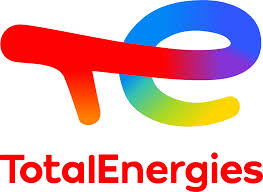TotalEnergies Marketing Nigeria Plc has announced robust financial results for the full year ended December 31, 2024, posting a pre-tax profit of N42.2 billion, a significant 140.35 per cent increase compared to N17.5 billion recorded in 2023.
This impressive growth was fueled by a sharp rise in revenue and a notable spike in other income.
The company’s full-year revenue soared by 63.83 per cent to N1.04 trillion, up from N635.9 billion in 2023.
A major driver of this performance was the sale of ‘White products’, including Premium Motor Spirit (PMS), Automotive Gas Oil (AGO), and Aviation Turbine Kerosene (ATK), which generated N830.4 billion.
The remaining N211.4 billion came from lubricants and other products.
Despite a 67.14 per cent rise in cost of sales, which reached N926.1 billion, TotalEnergies grew its gross profit to N115.7 billion, a 41.47 per cent increase year-on-year.
Another standout was ‘Other Income,’ which surged to N30.8 billion—a 610.87 per cent jump from the previous year—largely due to a N25 billion write back of accruals.
However, the company also reported a sharp rise in administrative expenses, which rose by 45.84 per cent to N64.7 billion, compared to N44.3 billion in 2023. Despite this, operating profit more than doubled to N61.8 billion, reflecting a 158.06 per cent increase from the prior year’s N23.9 billion.
TotalEnergies’ total assets rose to N471.1 billion, up 25.59 per cent year-on-year, while retained earnings reached N74.9 billion, an increase of 33.99 per cent.
In light of the strong performance, the Board of Directors has proposed a final dividend of N40.00 per ordinary share, a significant boost from the N25.00 paid in 2023.
As of April 4, 2025, TotalEnergies’ share price stood at N679.70, reflecting a year-to-date decline of 2.62 per cent. This dip comes after a stellar performance in 2024, during which the stock delivered a YtD return of 81.30 per cent.
Market analysts have lauded TotalEnergies’ ability to sustain profitability in a challenging macroeconomic environment marked by currency volatility, rising input costs, and fluctuating oil prices.
According to equity analyst Ifeanyi Akpan, this result shows solid operational efficiency and smart financial management.
“The surge in other income from write backs and the strategic pricing of key petroleum products helped offset the rising cost environment.”
Another analyst, Halima Yusuf, added: “While the company faces pressures from rising expenses and forex instability, its strong balance sheet and dividend policy continue to make it attractive to investors in the medium to long term.”

